Με πολλήν προσοχήν πρέπει να περνούμεν τας ημέρας μας. Ο διάβολος είναι πολύ πονηρός και καιροφυλακτεί να μας παγιδεύση εν καιρώ πνευματικού νυσταγμού και να μας κάμνη υπευθύνους ενώπιον του Θεού και της συνειδήσεως.
Είθε ο Θεός να τον καταργήση, ώστε να μην ημπορή να μας κάμνη κακόν, αλλά ως δίκαιος, δεν δύναται να σηκώση το αυτεξούσιον του ανθρώπου, και ούτω προαιρετικώς υπακούομεν, εγώ πρώτος, εις τας πονηράς υποβολάς του διαβόλου και αμαρτάνομεν.
Γέροντας Εφραίμ Φιλοθειτης
Είθε ο Θεός να τον καταργήση, ώστε να μην ημπορή να μας κάμνη κακόν, αλλά ως δίκαιος, δεν δύναται να σηκώση το αυτεξούσιον του ανθρώπου, και ούτω προαιρετικώς υπακούομεν, εγώ πρώτος, εις τας πονηράς υποβολάς του διαβόλου και αμαρτάνομεν.
Γέροντας Εφραίμ Φιλοθειτης














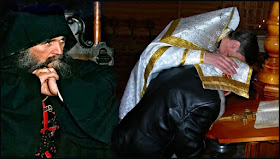















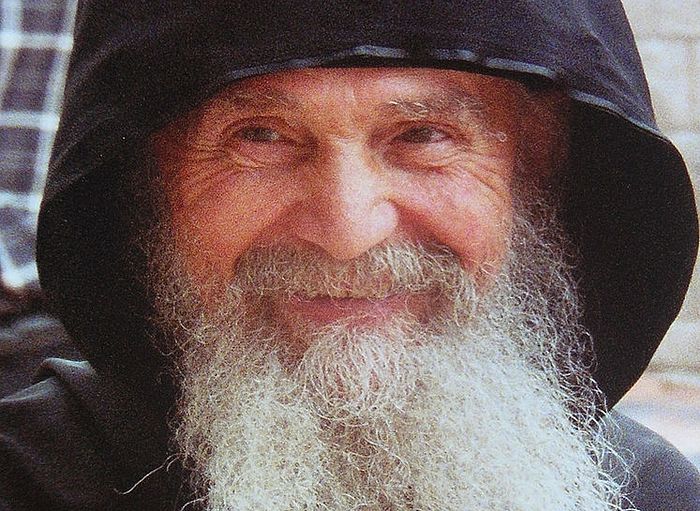 Elder Ephraim is a spiritual child of the great Elder Joseph the Hesychast, and wrote about his spiritual father in the amazing book My Elder Joseph the Hesychast. Elder Ephraim became known as “of Philotheou” from 1973 when he was elected abbot of the monastery of Philotheou on Mt. Athos and in no time revived the ascetic monastic life there. After that the Sacred Community of the Holy Mountain blessed Elder Ephraim to expand and fill three other Athonite monasteries with those seeking the monastic life:
Elder Ephraim is a spiritual child of the great Elder Joseph the Hesychast, and wrote about his spiritual father in the amazing book My Elder Joseph the Hesychast. Elder Ephraim became known as “of Philotheou” from 1973 when he was elected abbot of the monastery of Philotheou on Mt. Athos and in no time revived the ascetic monastic life there. After that the Sacred Community of the Holy Mountain blessed Elder Ephraim to expand and fill three other Athonite monasteries with those seeking the monastic life: 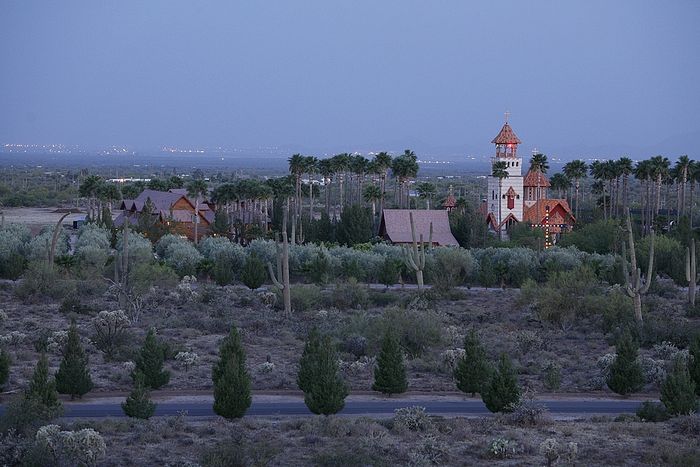 St. Anthony's Monastery
St. Anthony's Monastery 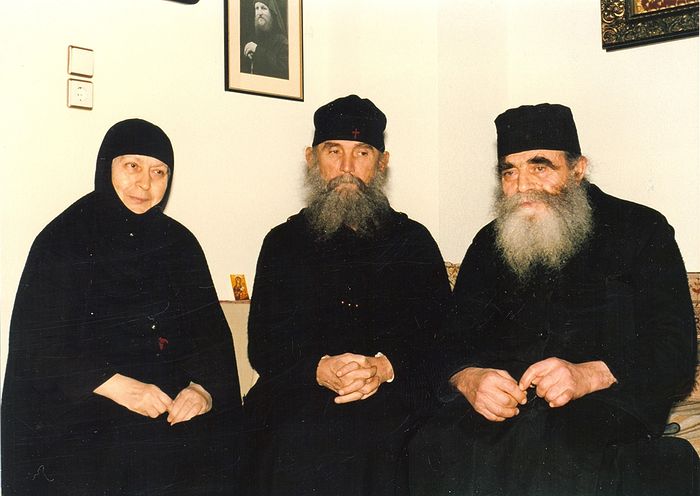 Gerontissa Macrina, Elder Ephraim, Fr. Joseph
Gerontissa Macrina, Elder Ephraim, Fr. Joseph 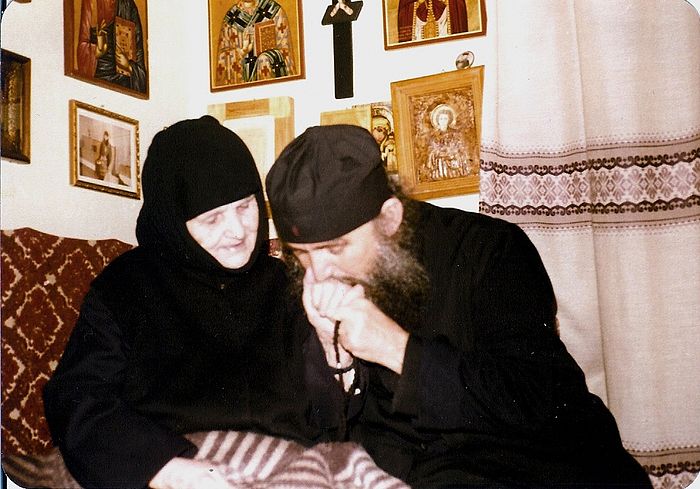 Elder Ephraim with his mother, Nun Theophano
Elder Ephraim with his mother, Nun Theophano 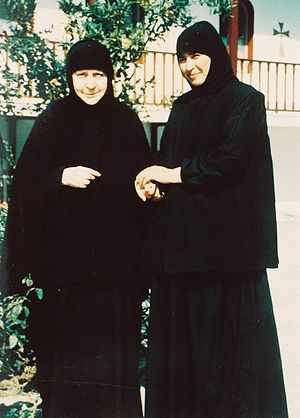 Gerontissa Macrina, Gerontissa Taxiarchia —The elder’s first monastery in America, opening in 1989, was the monastery of the Nativity of the Theotokos in Pennsylvania. The first gerontissa of the elder in America was Gerontissa Taxiarchia († 1994) of blessed memory.
Gerontissa Macrina, Gerontissa Taxiarchia —The elder’s first monastery in America, opening in 1989, was the monastery of the Nativity of the Theotokos in Pennsylvania. The first gerontissa of the elder in America was Gerontissa Taxiarchia († 1994) of blessed memory. 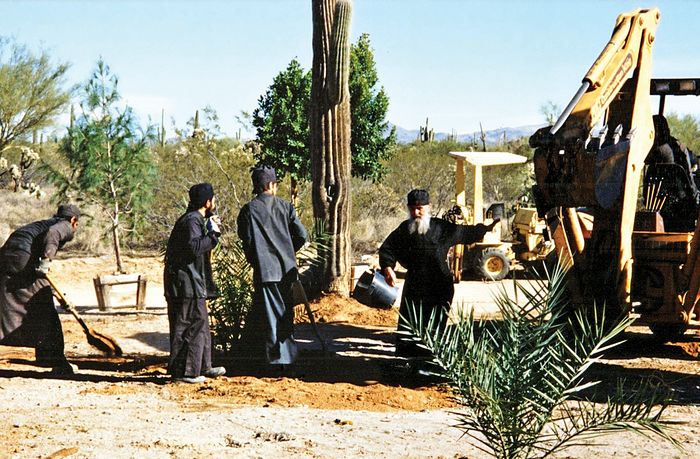 Planting trees, Elder Ephraim working along with the brethren
Planting trees, Elder Ephraim working along with the brethren 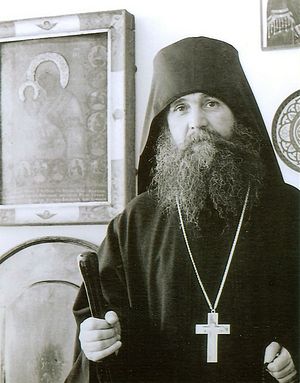 Elder Ephraim, when he was abbot of Philotheou Monastery Yes, Elder Ephraim received a worthy education from Grandpa Joseph. Grandpa Joseph had schooled him in unconditional obedience because he knew that after his death Elder Ephraim would have to render obedience to Christ Himself, and it is exceedingly more difficult. Just imagine, was it easy for Elder Ephraim to leave the Athonite Philotheou Monastery, so wonderful, blessed, beautifully-organized, and pass it into the hands of his pupil in order to roam somewhere far from his Motherland?!
Elder Ephraim, when he was abbot of Philotheou Monastery Yes, Elder Ephraim received a worthy education from Grandpa Joseph. Grandpa Joseph had schooled him in unconditional obedience because he knew that after his death Elder Ephraim would have to render obedience to Christ Himself, and it is exceedingly more difficult. Just imagine, was it easy for Elder Ephraim to leave the Athonite Philotheou Monastery, so wonderful, blessed, beautifully-organized, and pass it into the hands of his pupil in order to roam somewhere far from his Motherland?! 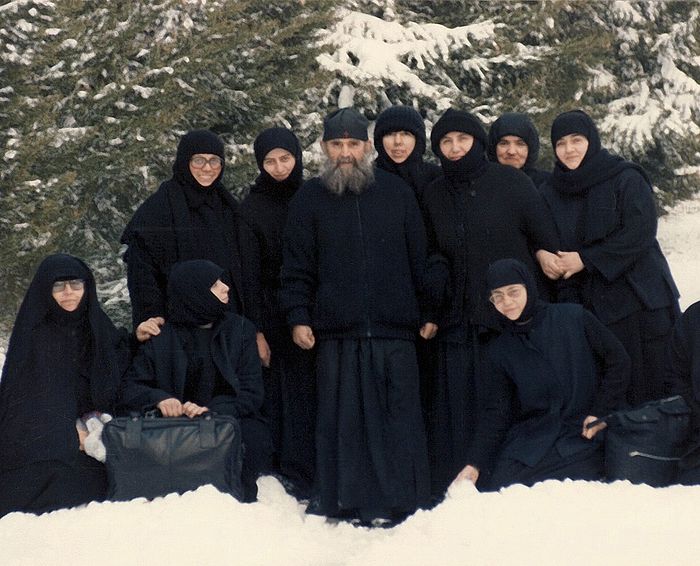 Elder Ephraim with sisters in North America
Elder Ephraim with sisters in North America 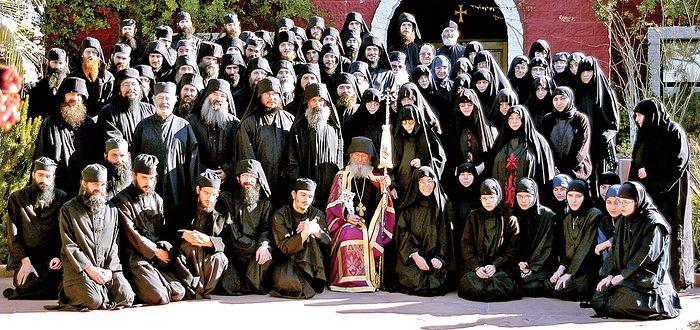 Elder Ephraim with spiritual children
Elder Ephraim with spiritual children